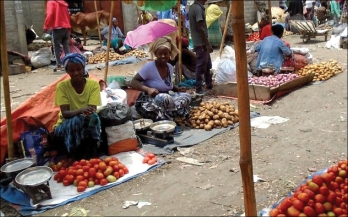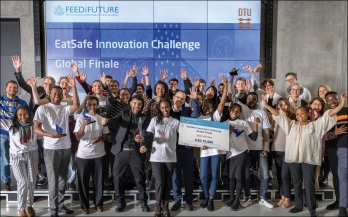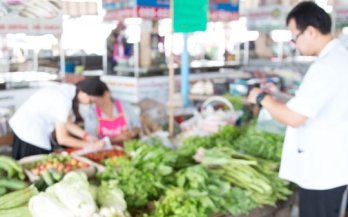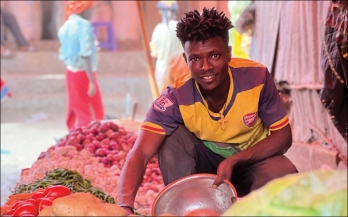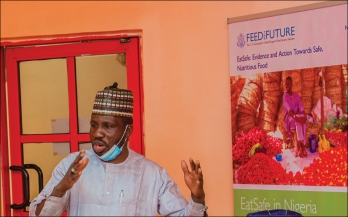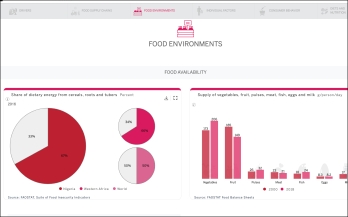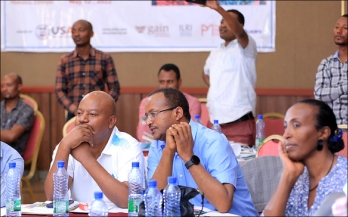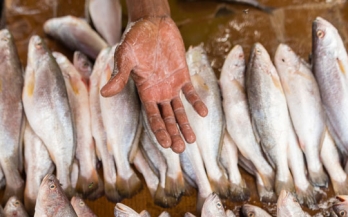EatSafe conducted three data collection activities, including interviews, observations, and a randomized experiment, to understand consumers’ and vendors’ food safety knowledge, attitudes, and practices in Hawassa, Ethiopia.
After receiving 750 applications from Nigeria and Ethiopia, one winner emerged from the Grand Finale of EatSafe's Innovation Challenge.
Gallup, Harvard University, and the Global Alliance for Improved Nutrition (GAIN) have today published a new report on diet quality entitled Measuring What the World Eats.It is the first report from the Global Diet Quality Project, with data based on the Diet Quality Questionnaire (DQQ), a standard questionnaire which takes just five minutes to complete.
EatSafe conducted a Story Sourcing activity, or the semi-formal process that uses journalistic techniques to gather stories directly from the audience of interest, to gather stories from traditional food market vendors and consumers in Hawassa, Ethiopia.
To increase consumer demand for improved food safety, EatSafe is testing four interventions that seek to change consumers and vendor behaviors in two traditional food markets in Northwestern Nigeria.
The 2022 EatSafe Innovation Challenge received 700 applications from students, researchers, and entrepreneurs with ideas how to adapt food system innovations to traditional food markets contexts and along value chains to solve food safety issues in Nigeria and Ethiopia.
EatSafe conducted focus group discussions and individual interviews with vendors and consumers to understand knowledge, attitudes, and practices related to food safety behaviors in Kebbi State, Nigeria.
In this report, EatSafe addresses the gap of food safety data within the Food Systems Dashboard (FSD) by identifying indicators relevant to national food safety systems, assess the availability of data sources, and develops a systematic, quantitative scheme to evaluate indicators against FSD inclusion criteria.
During program startup in Ethiopia, EatSafe identified and gauged stakeholders’ interest and influence in food safety. EatSafe then convened a series of events to engage these stakeholders at local and national levels prior to intervention implementation.
Achieving optimal health and nutrition requires people to be both well-nourished and free from foodborne hazards. The Global Alliance for Improved Nutrition (GAIN) has long recognized the importance of integrating food safety to achieve global nutrition and food security goals.
